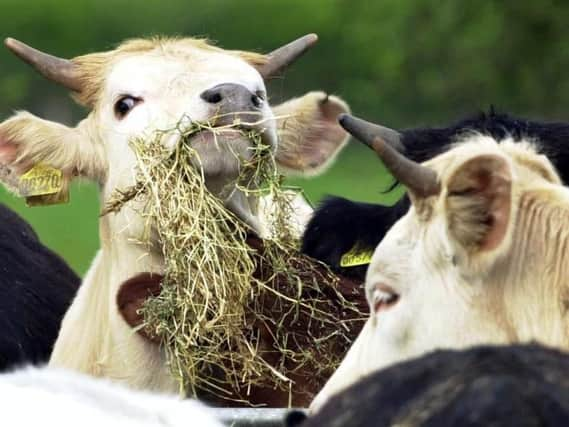Supermarket meat supplier fined for breaching BSE rules


Dunbia’s Preston abattoir in the north of England, which supplies supermarkets including Sainsbury’s and the Co-op, was fined £266,000 by the Food Standards Agency (FSA) after pleading guilty for failing to ensure the removal of specified parts of the animals required by law.
FSA inspectors found a sheep without a fully removed spleen and a cow that had not had its spinal cord fully removed. The final charge was for two sheep heads with permanent incisors erupted which were incorrectly identified as lambs and therefore destined for human consumption instead of disposal. The infringements relate to the Transmissible Spongiform Encephalopathies (TSE) regulations.
Advertisement
Hide AdAdvertisement
Hide AdAfter pleading guilty, Dunbia received a reduced £250,000 fine for the three offences and was ordered to pay full prosecution costs of £16,121.42 and a victim surcharge of £170.
The company, which employs thousands of people at its 11 sites throughout the UK and Ireland, processes beef and lamb for retailers. It bought Lynch Quality Meats in Ayr in 2014 and also owns Highland Meats in Saltcoats.
The written judgement from HHJ Woolman was issued on 25 March following a sentencing hearing which took place at Preston Crown Court on 11 March.
TSE regulations help to reduce risk from a group of brain diseases that cattle, sheep and goats are vulnerable to by requiring correct removal and disposal of specific parts of those animals before they enter the food chain. The most widely recognised of these diseases is BSE in cattle - often known as ‘mad cow disease’ - which has been linked to the human TSE diseases such as Creutzfeldt-Jakob disease (CJD). BSE was first identified in cattle in 1986 and was found to be capable of spreading to humans a year later.
A case of the disease was found on a farm in Aberdeenshire last year.
Dr Colin Sullivan, chief operating officer at the FSA, said: “This very significant fine underlines just how seriously breaches of these regulations are taken.“It is vitally important for consumers and the wider industry that they are followed and public health is protected. The FSA will continue to investigate and prosecute any food businesses we find failing to uphold them.”
He added: “However, I should put on record that since the start of court proceedings Dunbia has signed up to our enhanced assurance initiative which involves working more closely with the company using data from a range of different audits and other data to help demonstrate compliance with official controls.”
A spokesman for the company said: "Dunbia apologises for the unintentional historic 2016/17 lapses at its Preston facility that led to this case being taken by the FSA. Whilst recognising human error was the cause, the controls in place ensured that none of the meat products concerned entered the food chain.
Advertisement
Hide AdAdvertisement
Hide Ad"The court’s findings acknowledge that enhanced operating procedures have been implemented at the facility, and that it is clear that the percentage of breaches was minimal, when contrasted with the number of animals processed."
He added: "We are committed to continued close collaboration with the FSA to maintain the highest food safety standards."